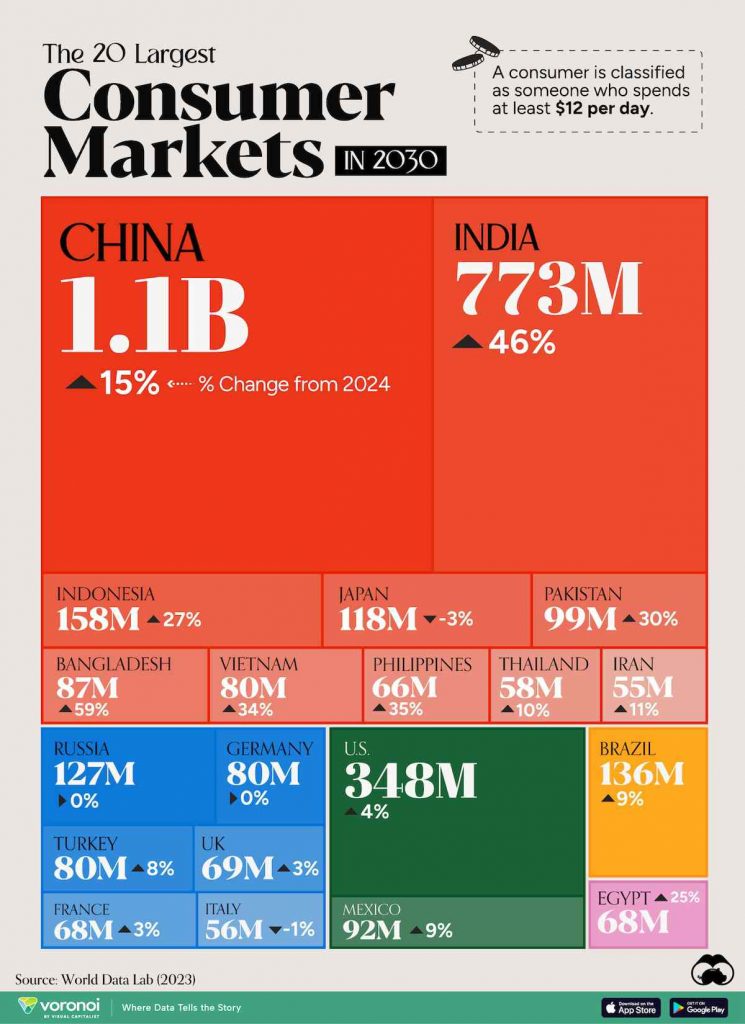The global startup scene is undergoing a period of significant transformation. The US remains the world’s leading startup ecosystem, scoring multiples ahead of the number 2 country, the United Kingdom. While San Francisco (Silicon Valley) ranks #1 globally, secondary cities in the US threaten its once uncontested dominance. Worldwide, regional startup hubs rising in South and Southeast Asia, e.g., Singapore and India, are also challenging Silicon Valley’s leadership. This shift is driven by a confluence of factors, including a global funding slowdown, rising geopolitical risk, global economic fragmentation, and global technology ubiquity. More importantly, significant socioeconomic transformation is occurring across the Global South, with incomes rising and evolving consumer needs. This blog post delves into these macro trends, drawing insights from the Startup Ecosystem Index Report 2024 by StartupBlink supplemented with additional perspectives from our team at ClearSky 2100 Ventures. We’ll explore the new regional startup hubs across Asia, Africa, Europe, and the Americas. For startups seeking to grow and scale, we highlight solutions such as Semrush (Digital Marketing), Alliance Virtual Offices (Coworking Spaces), and OrangeDox (Virtual Data Rooms). These solutions give startups the edge as they seek to stay competitive and grow in a rapidly evolving and uncertain global and regional business landscape.
The StartupBlink Report 2024: A Glimpse into a Changing Ecosystem
The 2024 Ecosystem Index Report released in May 2024 paints a picture of startup ecosystems in flux and transition. Overall, the report highlights a global funding winter, steady US dominance, regional challenges from Asia, and fissures emerging within the European startup ecosystem. Consequently, many startups are pivoting (voluntarily or involuntarily) their strategies, prioritizing profitability over hypergrowth, the dominant approach in recent years.
Deep Data-Driven Insights
The analysis draws on hundreds of thousands of data points from 100 countries and 1000 cities. Major global data partners include Semrush, Siemens, UNDP, etc. The report ranks the quality of respective startup ecosystems incorporating three core factors, which include:
What is a startup? Any business that applies an innovative technology-enabled solution with the potential to achieve scalability
The Global Startup Ecosystem Index Report 2024
- Quantity: The quality of several stakeholders, including startups, investors, coworking spaces, accelerators, meet-ups, etc.
- Quality: Private sector startup investment, startup employees, number of unicorns and exits ($1B), events and conferences, number of accelerators, etc.
- Startup Business Environment: Diversity, internet speed, internet freedom, passport strength, corruption index, # of universities, R&D investment, etc.
Additional analysis includes the classification of 11 industries and 91 subindustries. Industries include Energy & Environment, Software & Data, E-commerce & Retail, Fintech, Transportation, etc. Subindustries include, among others, Edtech, Blockchain, Agtech, Content Marketing, Logistics, etc.
Macro Headwinds for Global Startups
Economic Fragmentation Amidst Rising Geopolitical Risk
In 2023, the global economy successfully transitioned out of the global pandemic, but it faced new headwinds. It’s worth noting that the Covid-19 pandemic officially ended in May 2023. Geopolitical tensions loom large, impacting the startup landscape as regional conflicts in Europe and the Middle East threaten the viability of companies, emerging regional ecosystems, and customer demand. Due to heightened tensions between countries, cross-border investments, collaborations, and market entry have become more difficult. For example, The Israeli startup ecosystem one of the world’s leading (#3 rank) has not been immune as the Israeli-Gaza conflict absorbed tech talent otherwise destined for startups. Estimates suggest that roughly 10% of the startup sector was drafted into the military due to the conflict. Nevertheless, the resilience of Israel’s startup ecosystem will successfully weather any transitory geopolitical and regional challenges, in our opinion.
The pandemic hangover and heightened geopolitical risks continue to push the world into their respective corners, fueling the rising trend toward economic fragmentation. Additionally, global banter on BRICS further highlights this trend. We don’t expect any long-term impact from BRICS, given the absence of underlying political stability across members necessary for cohesion. Whether economic fragmentation causes any permanent damage to long-term efforts at globalization remains to be seen. However, new opportunities and business models are being created as startups focus on building strong regional presences.
We expect the ongoing theme of economic fragmentation to remain intact as we head into the 2024 global election cycle. The smaller governing majority in India’s elections and the shift to the right in the European Parliamentary elections offer some clues. In 2024 more than half of the world’s population will vote, the largest in human history. Outcomes are still to be determined, but we expect a more inward and country-first approach. We also should see the emergence of more fluid and transactional geopolitical alliances. The outcome of the November elections in the US will be one of consequence, setting the direction for startup ecosystems worldwide.
Shifting Supply Chains
Recent trends toward nearshoring and reshoring reflect the impact of geopolitics on global supply chains. Attacks on Middle Eastern shipping lanes over the past 12 months are causing executives to bring supply chains closer to customer demand. In 2023, Mexico regained its title as the United States’ largest trading partner, displacing China. In 2024, the United States should displace China as South Korea’s and ASEAN’s largest trading partner. The Regional Comprehensive Economic Partnership in Asia, an ASEAN +5 trade pact, and USMCA are in full swing. The impact of these economic partnerships will most certifiably affect the regional startup picture in North America, Asia, and Europe. Moreover, sectors once considered global are now viewed as strategic, e.g., semiconductors, biotechnology, etc. To hedge against these geopolitical risks, substantial public sector investment continues to flow into these strategic sectors, e.g., the CHIPS Act in the United States.

AI Everywhere
Since the launch of Chat GPT, artificial intelligence (AI) has continually dominated news and funding cycles as the sector experiences unprecedented growth. Forecasts predict the AI market will reach $1.8 trillion by 2027 from $200 billion in 2023. AI adoption rates are accelerating, with more than half of businesses incorporating AI into their products and services. The various ways businesses use AI vary, including customer service, cybersecurity, and supply chain operations.
Tech giants like Microsoft, Google, and Meta are leading the charge on AI development. Microsoft’s $13 billion investment in OpenAI, the creator of ChatGPT, has solidified its position in the AI market. Google’s Gemini continues to make strides in AI research and development. Apple, in its June 2024 WWDC, announced Apple Intelligence, its road map for integration of AI into the worldwide Apple ecosystem.
The rapid growth in AI is transforming industries across the board, from healthcare and finance to manufacturing and transportation. Analysts expect AI to replace over 300 million jobs. While this chapter has yet to be written tech layoffs continue as more companies pivot to an AI future. As AI further evolves and permeates societies, its impact on the global economy is expected to be profound.
Startup Funding Trends: From Unicorns to Sustainability
The funding winter in 2023 has fundamentally changed the game for startups. Funding in 2023 fell 38% to $285 billion, its lowest level since 2018, with early-stage funding taking the biggest hit (-40%). The easy access to venture capital that fueled the rise of billion-dollar “unicorns” is no longer the norm. In the 6 months between November 2023 and April 2024, the number of new unicorns remained in the single digits, according to the Ecosystem Index Report. As we move into 2024, a buoyant but slowing US economy and the global election cycle will present challenges. Both offer the potential to cause massive swings in funding. Baseline global economic growth is now forecast at 3.2% in 2024 and 2025, with 3.1% in the next five years, the lowest in decades, according to the IMF.
Layoffs in big tech will continue as companies adjust to the realities of AI and reallocate capital to capture new opportunities. However, sectors like FinTech and Cybersecurity are likely to remain strong due to their continued relevance in the current geoeconomic climate.
The funding trough is expected to continue in the near-term. Analysts have suggested that the industry has gotten ahead of itself, given the number of VC firms and the money being managed relative to the value they are creating. AI company valuations may be approaching frothy levels as startups continue to position themselves as AI or AI startups offer no customer value. This is reminiscent to the pre-pandemic period when companies positioned themselves as tech. We expect a shakeout in the next 12-24 months.

Future of Work Trends
The future of work is being shaped by several trends, including the rise of remote work, hybrid models, and return-to-office (RTO) initiatives. According to a Gallup survey over 76% of workers prefer a hybrid work model. While these trends offer flexibility and potential cost savings, they also present unique challenges for employers as they compete for talent worldwide. As such, startups need to understand the pros and cons of employment models. For example,
- Work From Home (WFH)
- Benefits: Increased autonomy, improved work-life balance, reduced commuting time
- Challenges: Isolation, lack of boundaries, difficulty collaborating, potential for distractions
- Hybrid Models
- Benefits: Combines the flexibility of remote work with in-person collaboration
- Challenges: Ensuring equity between remote and in-office employees, managing scheduling and communication, maintaining company culture
- Return-to-Office (RTO)
- Benefits: Facilitates in-person collaboration, strengthens company culture, provides access to resources
- Challenges: Resistance from employees accustomed to remote work, the potential for increased turnover, ensuring a safe and healthy workplace
In the United States, close to 45% of the US workforce (72.1 million) is now considered. We expect this to grow as AI becomes more ubiquitous In 2023, small business growth in the US reached a record as more than 5.5 million businesses were created. Worldwide, the number of entrepreneurs stands at close to 600 million, with continued robust growth as technology barriers rapidly come down. These trends suggest the employer-employee bargain is transforming. This is likely to continue over the next several decades.
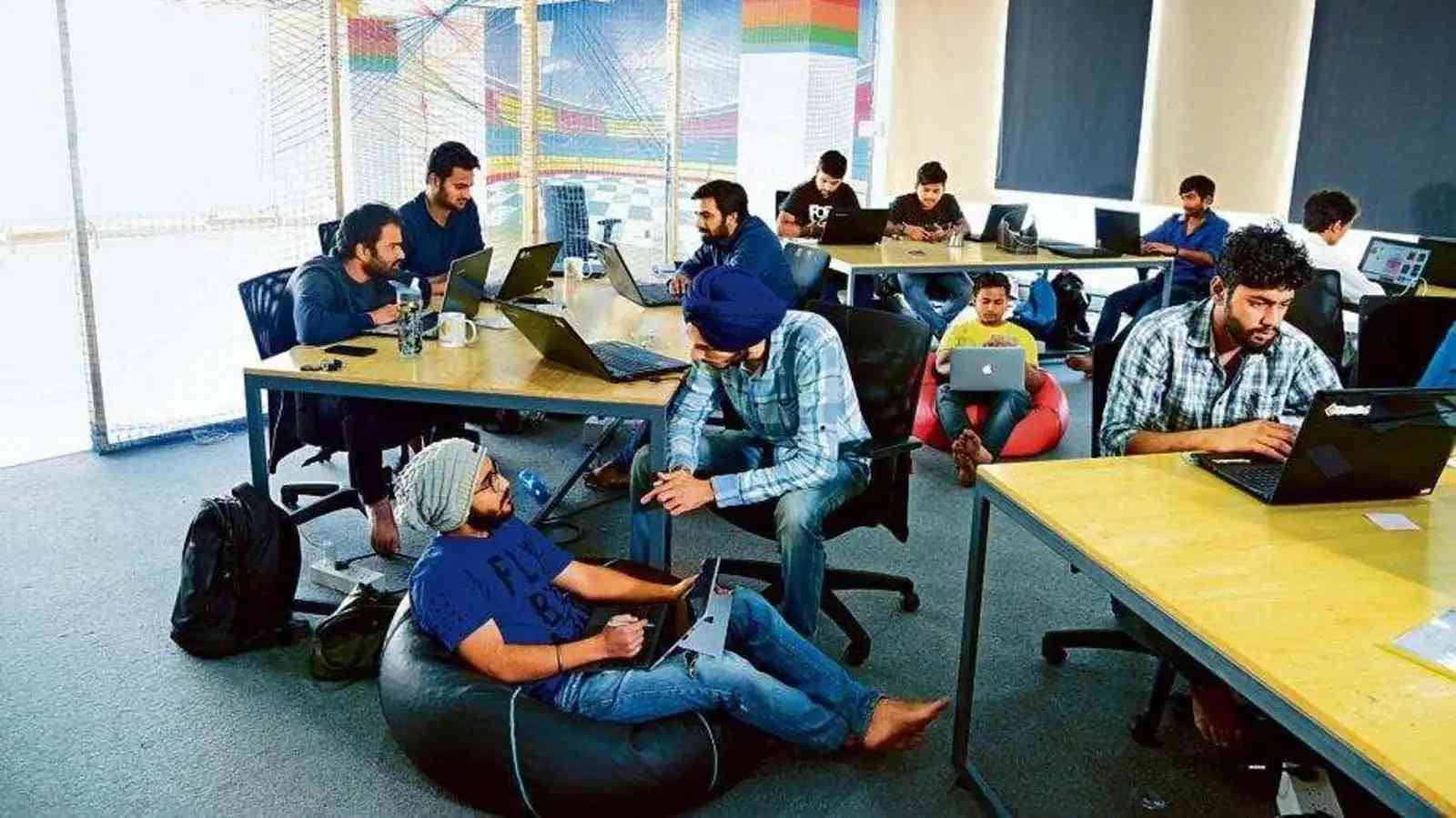
Global Outlook for Startup Sectors
The StartupBlink report highlights industry-specific trends that will shape the future of the startup landscape. Here are some sectors with high growth potential:
- FinTech: The FinTech sector continues to be a driving force in innovation, with solutions focused on digital lending, digital payments, and Insurtech gaining traction. Most of this activity will occur in the emerging markets of Asia and Africa as this sector continues to receive the most funding globally. According to analysts, the sector will continue its double-digit growth, reaching US1.1 trillion by 2032
- Cybersecurity: With the ever-increasing threat of cyberattacks, the need for robust cybersecurity solutions is paramount. Startups developing innovative solutions for data protection, threat detection, and incident response will be well-positioned for growth.
- AgTech: Climate change and urbanization is giving rise to global food security concerns. As such, AgTech startups are developing solutions to improve agricultural efficiency and sustainability. With 70% of the world’s population expected to inhabit cities by 2050 feeding an increasingly urban world is becoming more challenging. Technologies like precision agriculture, vertical farming, and AI-powered crop management will figure prominently in solutions.
- HealthTech: Between the census periods 2010 and 2020, the US population of people aged 65 and older grew at its fastest rate. Moreover, China is now demographically an aging society as birth rates continue to decline. In 2020, the world’s population aged 50+ contributed $45 trillion to global GDP, representing 34% of the total. As innovation helps the world’s population to live longer, growth in the longevity economy will drive growth in the HealthTech sector. Startups developing solutions for remote patient monitoring, telemedicine, and personalized medicine will support strong sector fundamentals over the long term.
The Rise of Regional Startup Powerhouses
For 2024, the United States, the United Kingdom, Israel, and Canada remained the top 4 startup ecosystems. The rankings of these four countries have held steady since 2020. The US remains the world’s dominant global startup ecosystem by far, based on ranking criteria. Its global dominance as a startup ecosystem is a function of its leading economy ($27 trillion), political and economic freedom, historical development pathways, societal DNA, and regenerative consumer demand. Additionally, the United States contains 11 of the world’s top 20 megaregions. These megaregions generate economic output substantially larger than all the countries in the top ten rankings. However, the report notes that overall, the number of US cities in the rankings continues to decline as cities like New Delhi (11th), Jakarta (27th), Dubai (50th), and Lagos (70th) grow in stature. These emerging cities boast strong local markets, quality talent pools, and increasingly supportive government policies.
In total 67 new cities joined the list of top 1000 startup ecosystems. US cities represented 24% of the total new entrants while India and Mexico accounted for 13% and 7% respectively.
In the coming decades, many countries and their respective local startup ecosystems will face headwinds as many seek to tap global markets in an economic environment marked by regionalism. More importantly, as many emerging countries in the Global South, transition through developmental phases, societal needs will change with innovation following. The dismantling of technological barriers will further strengthen the competitiveness of many of these regional startup hubs.
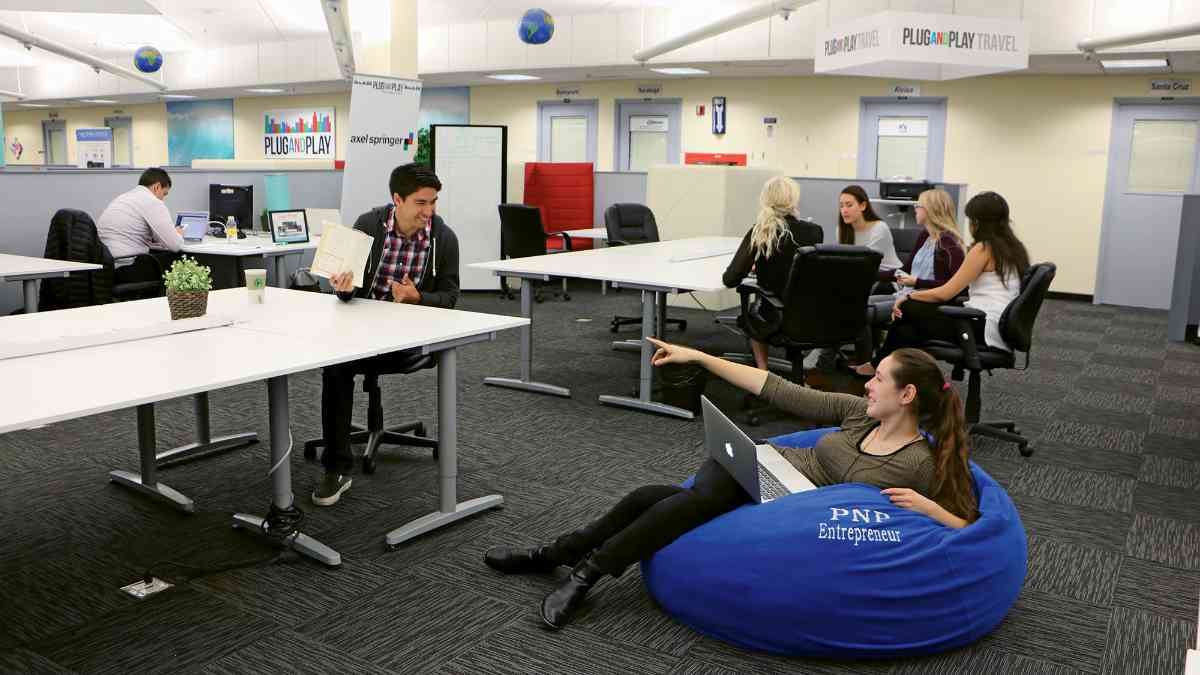
North America: Sustained Dominance
The US startup ecosystem is the uncontested leader globally, with key cities such as San Francisco, New York, and Boston maintaining global leadership positions. The report raises some concerns about the increase in the number of US cities exiting the list. It highlights that for the first time, the percentage of US cities in the top 1000 fell below 25%. We believe these issues are transitory. Cities and their respective startup ecosystems will adjust as new industries emerge, demographics shift, and consumption patterns evolve. The US remains well-positioned to leverage and monetize some of these trends. Startup ecosystem success is also a function of the quality and competitiveness of economic development initiatives, which may clash with other funding priorities.

US cities comprise more than one-third of the top 100 startup ecosystems globally. Cities in China and Canada represent the next largest group, comprising 7% and 5% of the top 100, respectively. The list of the top 10 startup ecosystems in the US and their global rank include:
- San Francisco (1st)
- New York (2nd)
- Los Angeles (4th)
- Boston (5th)
- Seattle (12th)
- Chicago (15th)
- Austin (17th)
- Washington D.C. (19th)
- San Diego (24th)
- Dallas (25th)
It’s worth noting that in addition to the quality of their startup ecosystems, these cities lead in various industries and sub-sectors. For example, San Francisco ranks #1 globally for Software & Data, Boston 2nd for HealthTech, and Washington DC 8th for Energy & Environment.
The performance of the Canadian startup ecosystem ranked 4th stays steady with some incremental gains at the city level as Calgary and Victoria showed improved performance in city rankings. At the sector/industry level, Canadian cities maintain leadership across many sectors, such as Blockchain, Cleantech, and food manufacturing. However, the spread in score between itself and the top 3 countries now places it on par with Singapore. Something to watch as Singapore continues its global ascent.
Asia: Startups Leveraging the Pacific Century
It’s clear the Pacific Century is in full swing. From Singapore to Mumbai, South and Southeast Asian startup ecosystems continue to climb in rankings. Singapore’s rapid global rise from 16th to 5th reflects several factors, including
- Strong Government Support: The Singaporean government actively fosters innovation through initiatives like the Startup Nation Singapore program. This program provides funding, mentorship, and access to resources for startups.
- Strategic Location: Singapore’s geographical location in Southeast Asia creates a gateway to vast and rapidly growing markets across East Asia, South Asia, and Southeast Asia (ASEAN).
- Developed Infrastructure: Singapore boasts a world-class infrastructure, including a robust telecommunications network and efficient logistics systems. This makes it an attractive location for startups looking to scale their operations.
- Talent Pool: Singapore has a highly skilled and educated workforce, making it easier for startups to find the talent they need to succeed.
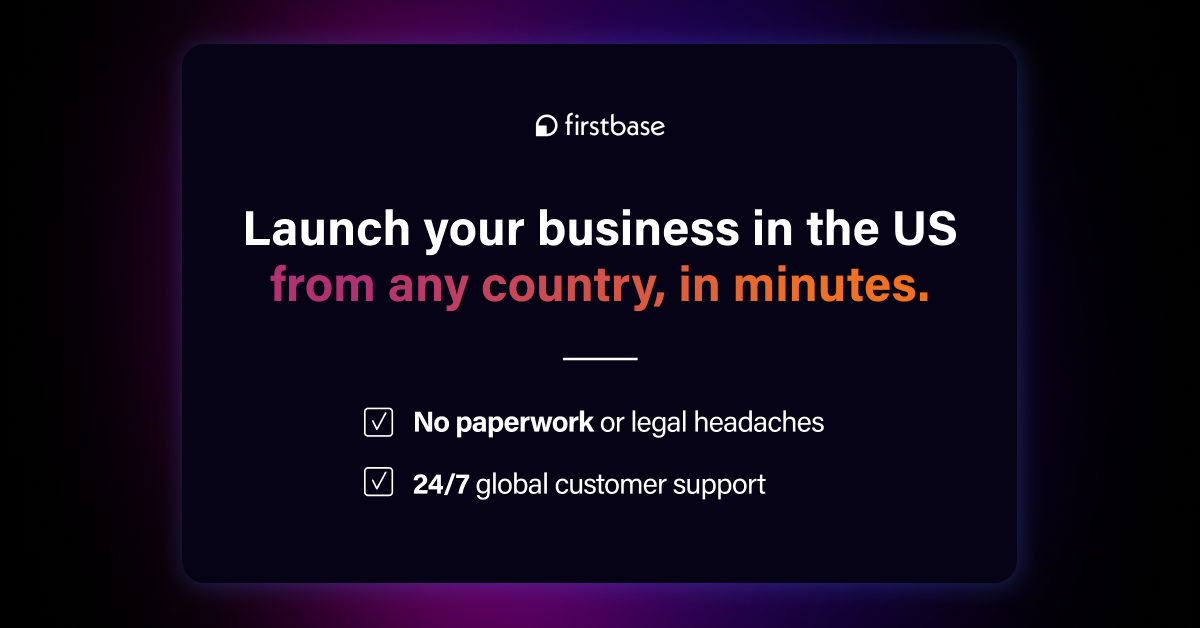
The country’s ecosystem is a magnet for innovation and a springboard into markets such as ASEAN, South Asia, and East Asia. ASEAN alone boasts a population of close to 700 million and an economy valued at over USD 10 trillion, or 6.5% of global GDP. The recent passage of the Regional Comprehensive Economic Partnership, an ASEAN +5 trade bloc, has brought down tariffs, facilitating the free flow of capital and labor. The agreement allows regional companies to leverage Singapore’s world-class infrastructure to capture opportunities in regional markets.
Singapore’s startup success reflects more of a trend as Asian countries climb the rankings. India, ranked 19th globally, moves up the ranks from 23rd in 2020, fueled by momentum across its key cities. Globally, Bangalore (8th), remains India’s top-ranked city well ahead of New Delhi (11th) In 2024, 46 Indian cities rank now rank in the top 1000 compared with 38 last year, nine of which made their debut. Additionally, Indian cities lead globally across many sectors, e.g., Bangalore is 5th in Fintech, and Mumbai is 10th in Edtech. The country ranks 8th in the number of Y combinator startups worldwide.
India’s momentum stands in stark contrast to China’s slowdown. China fell out of the top 10 landing at 13th in 2024. Challenging funding and regulatory environments continue to hamper the direction of Chinese startup ecosystems. Nevertheless, the country’s global leadership across certain sectors remains clear, particularly in areas such as Edtech, Hardware & IoT, and transportation. Internally, China’s society is rapidly undergoing socio-economic and demographic shifts which will create new and exciting growth opportunities for investors, in our opinion.
Africa: Continent-Wide Startup Ecosystems Remain Resilient
The African startup sector continues to thrive. However, the continent has not been immune from the funding winter that beset the global VC sector. As what some call a reset, the number of funded ventures fell 35.9% with a 50% decline in active investors, according to regional startup ecosystem monitor, disruptAfrica. Nigeria has been hardest hit, experiencing a funding decline of 59%. Countries in Eastern Africa and Southern Africa fared better. Both South Africa and Kenya experienced funding increases. Leading sectors such as Fintech and E-commerce experienced funding declines down 33.4% and 80% respectively. However, energy remained the bright spot with a funding uptick as companies on the continent took advantage of its abundant renewable energy resources. The continent remains concentrated as Nigeria, South Africa, Kenya, and Egypt accounted for 90.4% of total funding.
African startup ecosystems remained resilient despite the decline in startup funding. Startup ecosystems across the continent represent 13% of the top 100 global startup ecosystems. The list of African startup ecosystems on the list includes:
- South Africa (52nd)
- Mauritius (59th)
- Kenya (63rd)
- Nigeria (64th)
- Egypt (66th)
- Cape Verde (78th)
- Senegal (86th)
- Namibia (87th)
- Ghana (88th)
- Tunisia (90th)
- Morocco (92nd)
- Uganda (95th)
- Rwanda (98th)
At the country level, Mauritius continues to climb in the ranking, while Senegal moved above Ghana and Namibia to bolster continent-specific rankings. The country rankings are likely to remain stable. However, the exciting activity remains at the city level, where many cities witnessed substantial movement in rankings and others entered the top 1000 for the first time. Pretoria and Durban moved several hundred spaces (+300 and +268, respectively) to advance in the top 1000 rankings. Additionally, the cities of Kisumu (Kenya), Alexandria (Egypt), and Kano (Nigeria) appeared in the top 100 rankings for the very first time, suggesting that intergovernmental and local support for startup ecosystems continues to grow. As we move toward 2050, the challenges emerging across the continent will create new opportunities and spur innovation.

Latin America & the Caribbean: Startup Ecosystem Stability
The performance of the Latin American startup ecosystem represents one of stability following a period of volatility for startup ecosystems across the region. Latin America & the Caribbean countries represent 13% of the top 100. In the 2024 report, Columbia (38th) and Mexico (41st) continue to make noteworthy progress, with Columbia increasing in raking and Mexican cities Leon and Tijuana significantly moving within the top 1000 ranking. Caribbean anchors such as Jamaica and Trinidad & Tobago ranked 89th and 93rd, respectively. Across the region, startup ecosystems continue to enjoy support from favorable government policies, large regional market access, and international investor interest. Many countries hold leading spots in various sectors e.g., Sustainability, Fintech, and IoT.
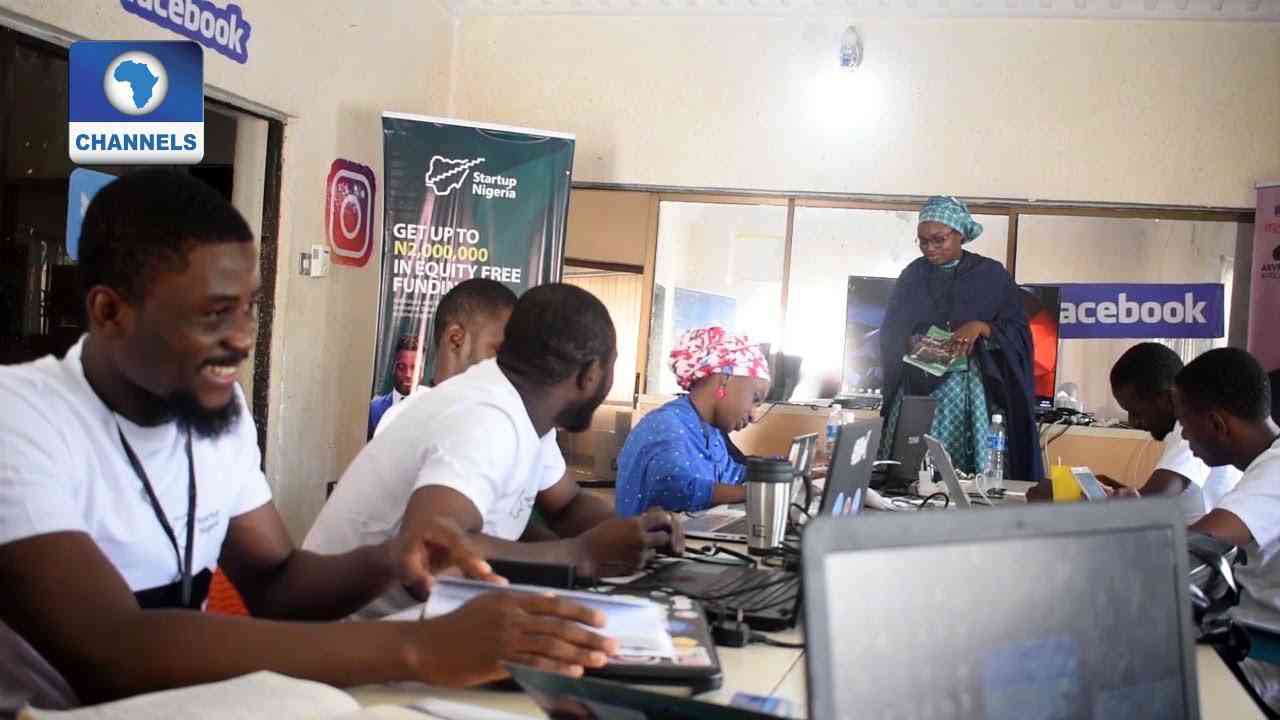
Europe & The Middle East: Startup Ecosystems at Risk
Europe faces a rath of challenges impacting its startup ecosystems. The lingering effects of Brexit, the global pandemic, a rigid regulatory environment, and talent migration to rising startup hubs raise concerns about the future competitiveness of the European startup ecosystems.
European countries continue to occupy top positions in the rankings. However, rankings are more volatile than in previous years. For example, Sweden, which peaked in 5th place in 2022 and 2023, has begun a decline. The report notes that 75% of Sweden’s startup ecosystems are losing momentum. Ecosystems in Germany and France also appear to show signs of softening. However, the performance at the country level masks resilience within individual city startup ecosystems. German cities of Frankfurt, Stuttgart, and Dusseldorf continue to show strength. Additionally, Mannheim appears as a new entrant with a ranking of #152.
Despite volatility in the rankings, European countries account for 45% of the top 100 startup ecosystems. Moreover, many cities within the EU are global leaders across many sectors e.g. Eindhoven (Sustainability), Paris (E-commerce & Retail), Munich (Transportation), and Stockholm (Energy & Environment). More broadly, Singapore’s accent to 5th place from 16th in 2020 suggests that EU countries will continue to face headwinds in maintaining top 10 positions.
Solutions to Scale
Both startups and their respective ecosystems need to evaluate the global competitive landscape and incorporate the right technologies to thrive and scale. Unfortunately, success remains elusive for many startups as many fail for multiple reasons, according to research from CB Insights. According to the research, the top 5 reasons startups fail include:
- Ran out of cash/failed to raise new capital
- No market need
- Get outcompeted
- Flawed business model
- Regulatory and Legal Challenges
Understanding market and competitor trends, staying close to customers, and providing value-added products are essential to surviving and scaling in a hyper-competitive global marketplace. At ClearSky 2100 Ventures, we’ve incorporated a set of partnerships for growth to help companies win. Let’s review three solutions and their benefits.
Semrush: Empowering Startup Growth with Data-Driven Digital Marketing
Semrush is a comprehensive digital marketing toolkit designed to help businesses of all sizes enhance their online presence. Its digital marketing tool kit consists of more than 50 products including website traffic analysis, SEO strategies, etc. Semrush collects search data from over 140 countries providing a wealth of information and insights for their clients.
Roughly 71% of businesses own a website; by 2040 more than 95% of purchases will be made online. For startups, Semrush offers a range of benefits that can be pivotal in their early-stage growth:
- Competitor Analysis: Startups can gain valuable insights into their competitors’ strategies, including keywords they rank for, backlinks, and ad campaigns. Keyword Research: Semrush provides tools to identify relevant keywords with high search volumes and low competition, enabling startups to optimize their content and improve search engine rankings.
- Site Audit: The platform offers a site audit feature to pinpoint technical SEO issues that may be hindering a startup’s website performance, along with actionable recommendations for improvement.
- Content Marketing: Semrush’s content marketing tools assist startups in creating content that resonates with their target audience and drives organic traffic. Key solutions include Content Shake AI, allowing users to create unlimited SEO-friendly articles.
- Social Media Management: Startups can manage their social media presence across various platforms, including Facebook, Instagram, TikTok, etc. Companies schedule posts and track their performance, staying engaged with customers and clients.
By leveraging Semrush’s extensive suite of tools, startups can make data-driven decisions, enhance their online visibility, and effectively compete in their respective markets.
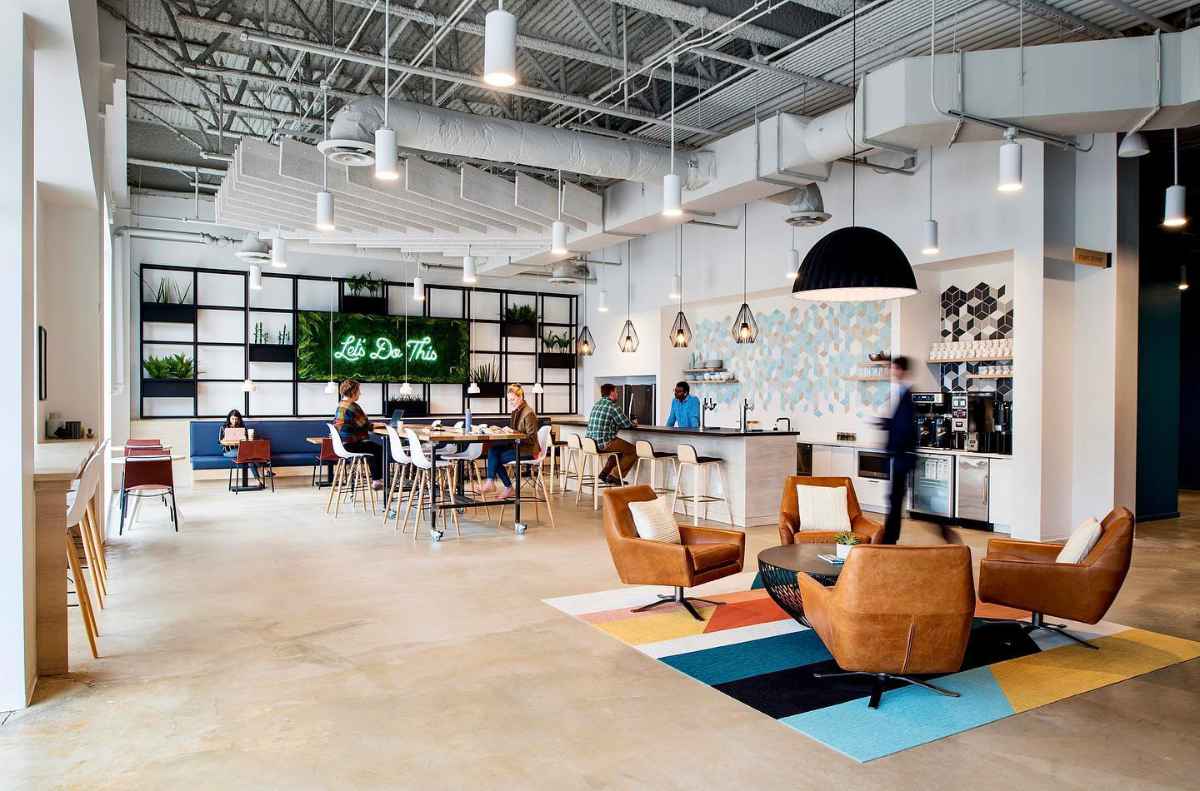
Alliance Virtual Offices: Fueling Startup Success with a Global Professional Presence
Coworking space is a key indicator of the quality of a city’s startup ecosystem. Alliance Virtual Offices is a leading global provider of virtual office and coworking solutions, with over 1,400 locations worldwide. Their services empower businesses of all sizes, particularly startups and remote teams, to establish a professional presence without the financial burden of traditional office space. This is especially beneficial in key startup hubs like New York, London, Singapore, Berlin, and Bangalore, where real estate costs are high.
Here’s what Alliance Virtual Offices offers:
- Prestigious Business Addresses: Choose from prime locations in major cities worldwide, enhancing your brand image and credibility.
- Mail Handling and Forwarding: Secure and efficient mail management, ensuring you never miss important correspondence.
- Live Receptionist Services: A professional team answers calls and greets visitors, providing a polished image for your business.
- Meeting Rooms and Day Offices: On-demand access to well-equipped spaces for meetings and presentations.
- Virtual Phone System: A comprehensive phone system with local or toll-free numbers, call forwarding, voicemail, and more, improving communication efficiency.
Controlling costs is a key challenge for startups. By leveraging Alliance Virtual Offices’ comprehensive suite of services, startups can optimize their operations, reduce overhead costs, and project a professional image that fosters trust with clients and partners, regardless of their location.
OrangeDox: Secure Virtual Data Rooms Powered by Google Drive
The funding winter in 2023 and into 2024 impacted startups across multiple sectors. Many startups continue to struggle to raise capital across multiple sectors. OrangeDox is a secure document-sharing and virtual data room solution designed to streamline collaboration and enhance data protection. Ideal for startups, investors, and businesses undergoing due diligence, OrangeDox integrates seamlessly with Google Drive, transforming folders into secure virtual data rooms. The company also integrates with Dropbox.
Key benefits of OrangeDox Virtual Data Room Solution include
- Robust Security: OrangeDox prioritizes document security with features like access control (email and device), watermarking, and activity tracking, ensuring sensitive data remains confidential. The platform uses a 256-bit advanced encryption standard through the OAuth Access Token protocol.
- Google Drive Integration: Users can leverage their existing Google Drive folders, simplifying document management and reducing the learning curve.
- Virtual Data Room Solution: Create a professional and organized data room environment to facilitate due diligence, fundraising, or M&A processes.
- Lead Capture and Analytics: Gather valuable insights into prospect engagement with documents, enabling data-driven decision-making and sales optimization.
- Ease of Use: OrangeDox’s intuitive interface allows users to quickly share, track, and manage documents with ease, saving time and resources.
By leveraging OrangeDox’s comprehensive features, businesses can streamline document sharing, enhance security, and gain valuable insights into prospect behavior, ultimately accelerating deal closures and driving business growth.
Pivoting to a Regional Growth Model
Finally, the new global startup landscape requires agility and a focus on long-term sustainability. Although conditions of economic fragmentation will likely continue in the near-term, the longer-term picture is unclear. Over the next 12-18 months, global electoral outcomes and conflict risk are key issues to monitor. As such, pivoting to a more regional strategy might be the winning move in the current geopolitical environment. Can Singapore replace Silicon Valley as a startup hub? Time will tell, and while challenges exist, the rise of regional hubs presents exciting opportunities. By focusing on building resilient businesses that address local needs and global challenges, startups can navigate the funding environment and thrive in the new normal. The changing landscape also presents opportunities for investors. New investment strategies focused on regional ecosystems and emerging technologies will be vital for navigating the evolving startup world. As the dominance of Silicon Valley wanes, the stage is set for a more diverse, dynamic, and competitive global startup ecosystem
To learn more about the report you can access it here. For more information on ClearSky 2100 Ventures Partnerships for Growth contact our team to learn more. Be sure to follow us on Social Media.
Disclosure: At ClearSky 2100, our portfolio partly consists of affiliate partnerships. We may earn a small commission from buying links on our site at no cost to you.


